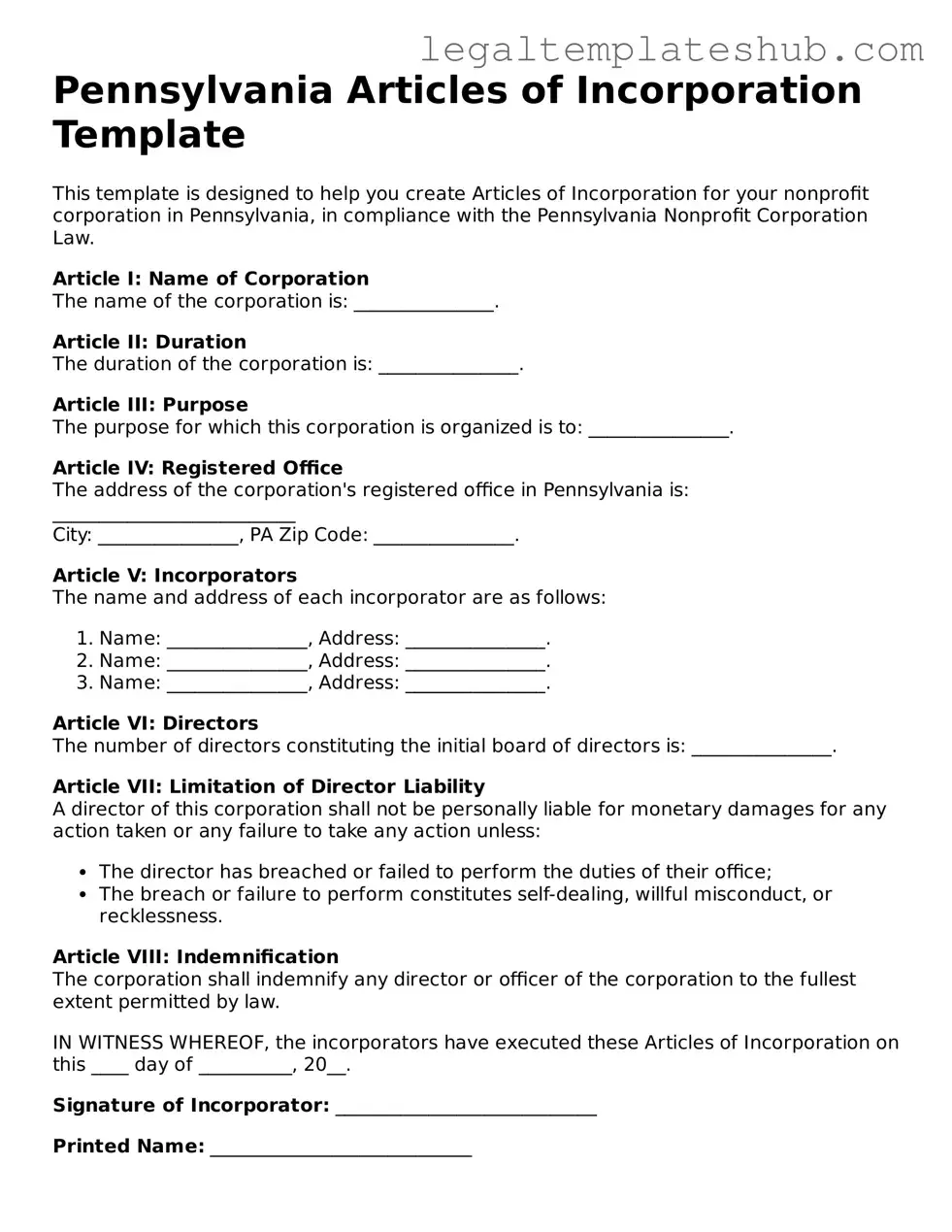Printable Articles of Incorporation Document for Pennsylvania
The Pennsylvania Articles of Incorporation form is a legal document required to establish a corporation in the state of Pennsylvania. This form outlines essential information about the corporation, including its name, purpose, and registered office address. Completing this form is a crucial step in the incorporation process, ensuring compliance with state regulations.
To begin your journey toward incorporating your business, please fill out the form by clicking the button below.
Access Editor
